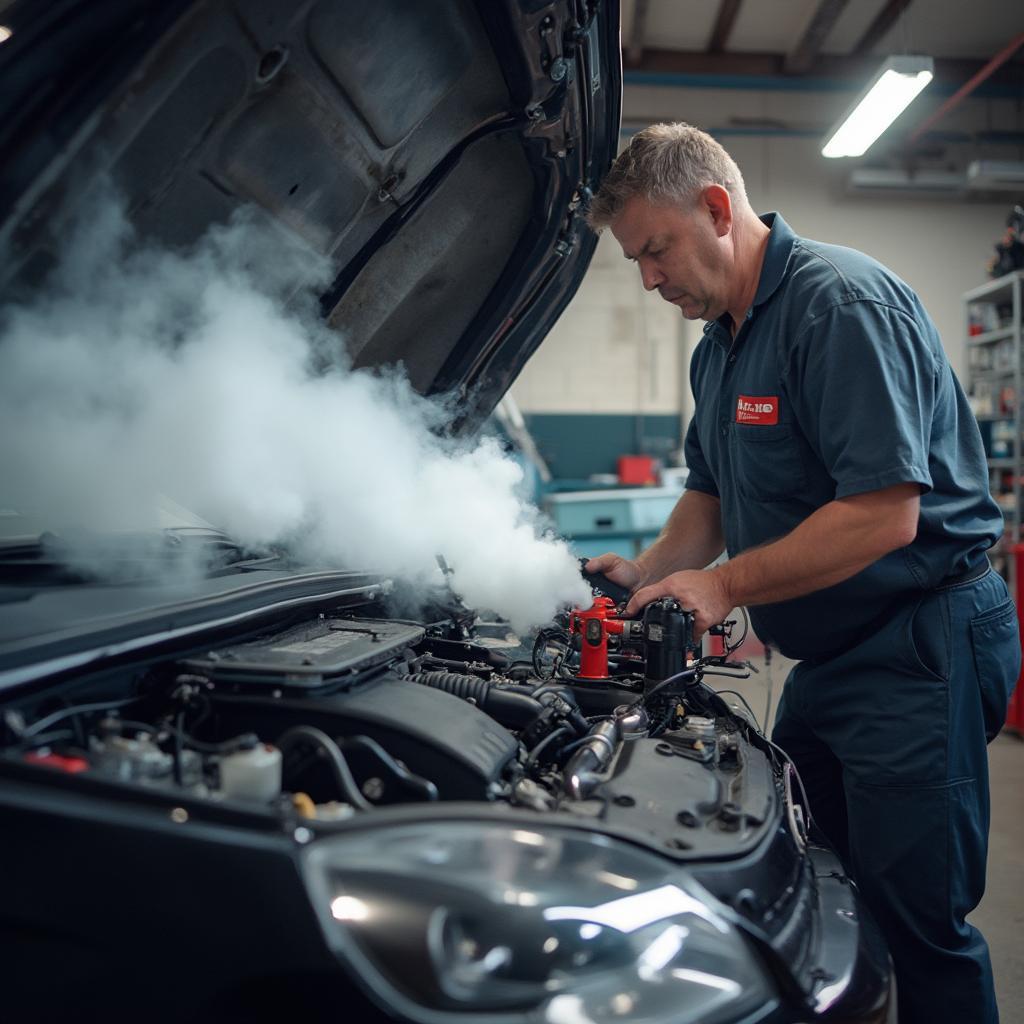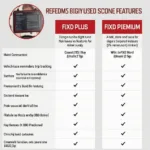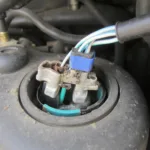Understanding OBD2 trouble codes, or “códigos de falla OBD2 más comunes” in Spanish, is crucial for any car owner or mechanic. These codes are your car’s way of telling you something’s wrong, and knowing what they mean can save you time, money, and potential headaches down the road. Whether you’re a seasoned mechanic or a DIY enthusiast, this guide will equip you with the knowledge to decipher those cryptic codes and address the underlying issues.
Deciphering Common OBD2 Trouble Codes (Códigos de Falla OBD2 Más Comunes)
OBD2, or On-Board Diagnostics II, is a standardized system that allows you to access your vehicle’s diagnostic information. When your car’s computer detects a problem, it generates a specific code. These codes, often starting with a “P” for powertrain, followed by four digits, pinpoint the nature of the issue. Knowing the most common OBD2 trouble codes empowers you to diagnose problems efficiently.
P0171 and P0174: System Too Lean (Bank 1 and Bank 2)
These codes indicate that the engine is running lean, meaning there’s too much air and not enough fuel in the air-fuel mixture. Causes can range from vacuum leaks and faulty oxygen sensors to a malfunctioning mass airflow sensor (MAF). Ignoring these codes can lead to decreased fuel economy and potential engine damage.
P0420: Catalyst System Efficiency Below Threshold (Bank 1)
This code suggests that the catalytic converter isn’t performing as efficiently as it should. This often indicates a failing catalytic converter, but it can also be caused by a faulty oxygen sensor. Replacing a catalytic converter can be expensive, so accurate diagnosis is essential.
P0300: Random/Multiple Cylinder Misfire Detected
A misfire occurs when a cylinder in the engine fails to fire properly. This can result in rough idling, reduced power, and increased emissions. Several factors can contribute to misfires, including faulty spark plugs, ignition coils, fuel injectors, or even low compression.
P0442: Evaporative Emission Control System Leak Detected (Small Leak)
This code indicates a small leak in the evaporative emission control (EVAP) system. This system is responsible for preventing fuel vapors from escaping into the atmosphere. A loose gas cap is a common culprit, but leaks can also occur in hoses, valves, or the fuel tank itself.
Why are OBD2 Codes Important?
Knowing what common OBD2 trouble codes mean can empower you to take control of your vehicle’s maintenance. It allows you to communicate effectively with mechanics, potentially saving you from unnecessary repairs.
Frequently Asked Questions about OBD2 Trouble Codes
Q: What does a “P” code mean?
A: “P” codes refer to powertrain-related issues, encompassing the engine, transmission, and associated components.
Q: Can I clear OBD2 codes myself?
A: Yes, you can use an OBD2 scanner to clear codes. However, this won’t fix the underlying problem. The code will likely reappear if the issue hasn’t been resolved.
Q: How often should I check my OBD2 codes?
A: It’s a good practice to check your codes periodically, especially if you notice any unusual symptoms in your vehicle’s performance.
Q: Are all OBD2 codes the same for all vehicles?
A: Yes, OBD2 codes are standardized across most vehicles manufactured after 1996 in the United States.
Q: Do I need a special tool to read OBD2 codes?
A: Yes, you need an OBD2 scanner, which can be purchased at most auto parts stores or online.
Conclusion
Understanding the most common OBD2 trouble codes, or “códigos de falla obd2 más comunes,” is a valuable skill for any car owner. By recognizing these codes, you can take proactive steps to maintain your vehicle and avoid costly repairs. Remember, addressing the underlying issue is key, and clearing codes without fixing the problem is only a temporary solution. For any assistance, please contact us via WhatsApp: +1(641)206-8880, Email: [email protected] or visit us at 789 Elm Street, San Francisco, CA 94102, USA. We offer 24/7 customer support.


